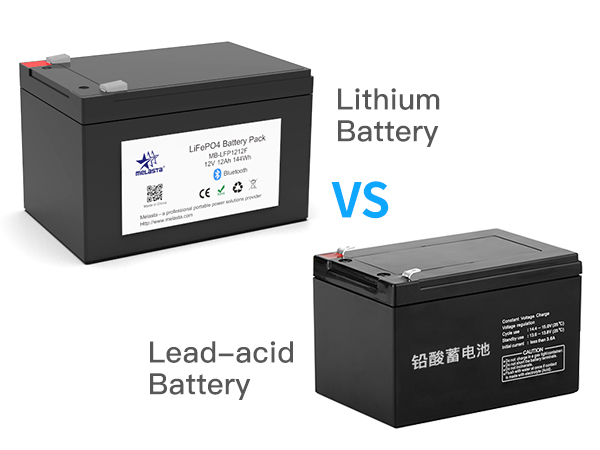If you are in the market for a battery and trying to find the best performance choices, you must compare the advantages and costs of lithium and lead acid options. A lithium battery is a perfect option. Whilst having more price, lithium batteries offer us added performance, life expectancy, dependability, and security for our cash than the standard lead acid batteries.
Let’s take a look at the 4 factors we must know to consider lithium over lead acid options for a lot of applications, such as automobiles, boats, and solar power storage:
These lithium batteries can be charged faster than lead acid ones, and more significantly, can be charged to complete capacity in a session. A lead acid option is charged over various sessions to reach capacity. Lithium battery is the winner here since for the majority of individuals checking battery again and again is time consuming.
While charging a lead-acid or lithium battery, the battery charger should fulfill the battery‘s requirements. A battery charger with a greater rate of charge is worth the investment if a battery stores more energy.
When we consider a lithium battery, we observe that it gives extra power for each square inch than a lead acid equivalent. These batteries likewise weigh significantly lower. A small, light battery is often a wise option while incorporating in applications where area and mass are crucial, such as boats and solar grids.
The small size and less mass of lithium battery is specifically remarkable while we think about efficiency. A common lead-acid option running at ten percent discharge attains 1750 cycles, whilst a cobalt lithium-ion working at a similar rate of discharge attains 4k or more cycles.
Li-ion technology likewise operates much well whilst deep cycling, indicating it has the capability of making equivalent amounts of output power at all charge levels. In case the charge of a lead acid battery goes down, its performance experiences a significant blow. The efficiency of lithium battery at a low charge level is vital if you intend on taking an electrical car or vessel out for a long journey, offering additional protection.

Lead acid batteries are no match for lithium batteries, particularly LiFePO4 ones, when we talk about the life period: five to 6 years usually. Lead acid has around 2 to 3 years, on average.
There are 2 reasons for a lithium battery‘s remarkable life expectancy. Firstly, lithium formulas result in very little physical harm to the battery. Lead-acid, on the other hand, deteriorates battery assembly gradually. Secondly, a lithium battery needs nearly no upkeep, but a lead acid option requires to be filled with water occasionally or much harm (and possibly, a security problem) can happen. A lithium battery likewise operates much well than a lead acid option in severe temperature levels. The lifespan of a lead acid battery steadies at 100 % at 77 degrees. Increase the temperature level to 127 degrees and steadiness falls to just 3 %. On the other hand, lithium‘s lifespan is not affected by a similar temperature.
These lithium batteries are constructed with extra precautions in order to limit physical harm, fires, and additional conflicting circumstances. A lead-acid option will rely on outdated technology, so in case the battery isn’t effectively preserved or goes through aggressive settings, it can become possibly dangerous.
In addition, a lead-acid option that has not been effectively disposed of presents a major ecological danger. As a lead-acid battery gnaws at the structure of a battery, it ends up being a cause of contamination. A lithium battery has no acid. It causes limited damage to its environments if disposed of negligently. No matter which battery we prefer, we must ensure that we deal with a supplier that offers us exceptional support and service, capable of examining our requirements and developing customized, high-ROI solutions.